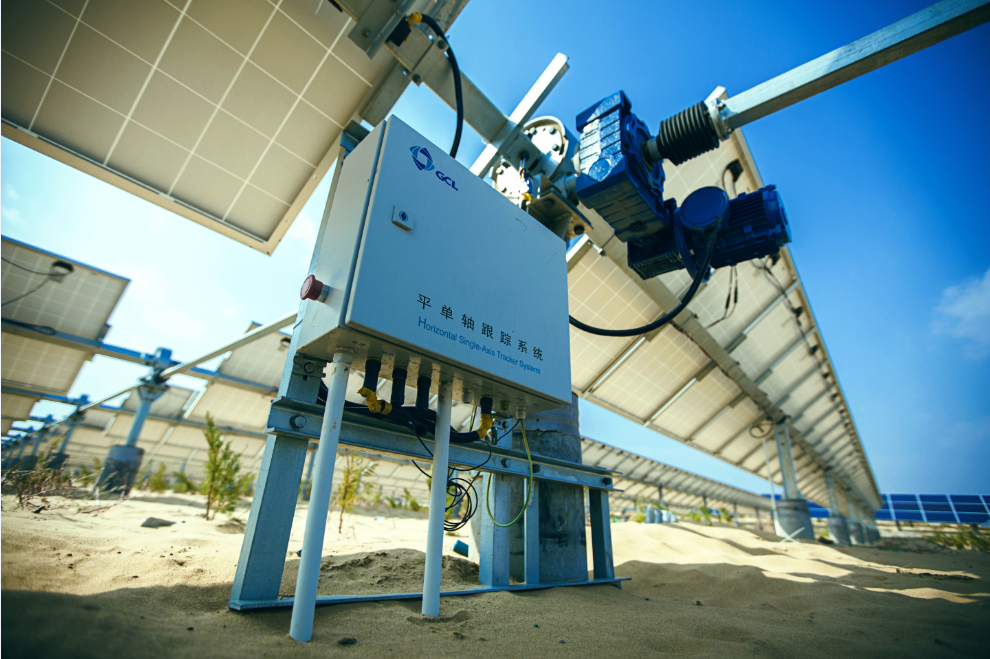CEE Tianjin — a subsidiary of state-owned CEE — will construct the PV array for an indirect wholly owned unit of GCL New Energy for 423.1 million yuan ($62.3 million). The project — located in Yangquan, Shandong province — will likely be completed within the next four months, according to a statement to the Hong Kong stock exchange.
The agreement is the latest in a series of agreements that GCL New Energy has finalized with several different CEE subsidiaries over the past 12 months. In July 2016, CEE Zhejiang signed an 18.8 million yuan deal to install 20 MW of solar capacity for GCL New Energy in Suzhou, Anhui province. Around the same time, CEE Tianjin agreed to build the second 36.16 MW phase of a 100 MW project that GCL New Energy was developing near Zhangjiakou, Hebei province. CEE Tianjin followed that 10.1 million yuan deal with an additional agreement to complete the third 42.98 MW phase of the Zhangjiakou project for 8.7 million yuan.
Last October, CEE Shaanxi Design agreed to design a 300 kV transmission line for a 50 MW solar project that GCL New Energy was building in Yulin, Shaanxi province. The deal was valued at 2.98 million yuan. Around the same time, CEE Gansu signed a 78 million yuan agreement to build 35 MW of PV capacity for GCL New Energy in Zhuanglang county, Gansu province.
Last December, CEE Heilongjiang signed a 12.8 million yuan agreement to install 20 MW of solar capacity at the Keyou Qianqi Ergutu industrial agricultural site in China’s Inner Mongolia region. Around the same time, CEE Suzhou Mingli agreed to lay a 35kV transmission line for a 20 MW solar project that GCL New Energy was developing in Suzhou, Anhui province. The deal to build the 13km transmission line was valued at 800,000 yuan.
GCL New Energy signed two more construction agreements with the CEE group this year. In January, CEE Xinan Design agreed to design an unspecified external transmission line for a 200 MW solar array in Nagarze county, Tibet. The deal was valued at 760,000 yuan. And in May, CEE Heilongjiang wrapped up an additional 1.9 million yuan deal for construction services related to the Keyou Qianqi Ergutu project in Inner Mongolia.
In a separate announcement this week, group unit Suzhou GCL revealed plans to transfer shares of two solar project companies — Jinhu Zhenhui Photovoltaic and Shandong Wanhai Solar Power — to Xi’an Zhongmin GCL New Energy, a GCL New Energy venture with Zhongmin New Energy (Shanghai) Investment. The agreement — valued at roughly 185.7 million yuan — is related to 130 MW of solar capacity in China. GCL New Energy said the transaction will help to free up cash flows, as part of its “asset-light” approach to PV development.
This week, GCL New Energy also signed several financial leasing agreements with CNEC Financial Leasing — a unit of China Nuclear Energy Technology — and Xi’an Datang Electric Power Design. The arrangements will provide GCL New Energy with fresh liquidity to facilitate the development of a number of solar projects in China, according to a statement to the Hong Kong stock exchange.
By the end of 2016, GCL New Energy had roughly 1 GW of solar capacity under construction in China. Those projects included about 360 MW under the government’s Top Runner program, in addition to 250 MW under Beijing’s poverty alleviation scheme. The company — which secured approval to issue $254 million of green bonds in March of this year — expects to complete 1.5 GW to 2 GW of solar capacity in 2017.
This content is protected by copyright and may not be reused. If you want to cooperate with us and would like to reuse some of our content, please contact: editors@pv-magazine.com.



By submitting this form you agree to pv magazine using your data for the purposes of publishing your comment.
Your personal data will only be disclosed or otherwise transmitted to third parties for the purposes of spam filtering or if this is necessary for technical maintenance of the website. Any other transfer to third parties will not take place unless this is justified on the basis of applicable data protection regulations or if pv magazine is legally obliged to do so.
You may revoke this consent at any time with effect for the future, in which case your personal data will be deleted immediately. Otherwise, your data will be deleted if pv magazine has processed your request or the purpose of data storage is fulfilled.
Further information on data privacy can be found in our Data Protection Policy.